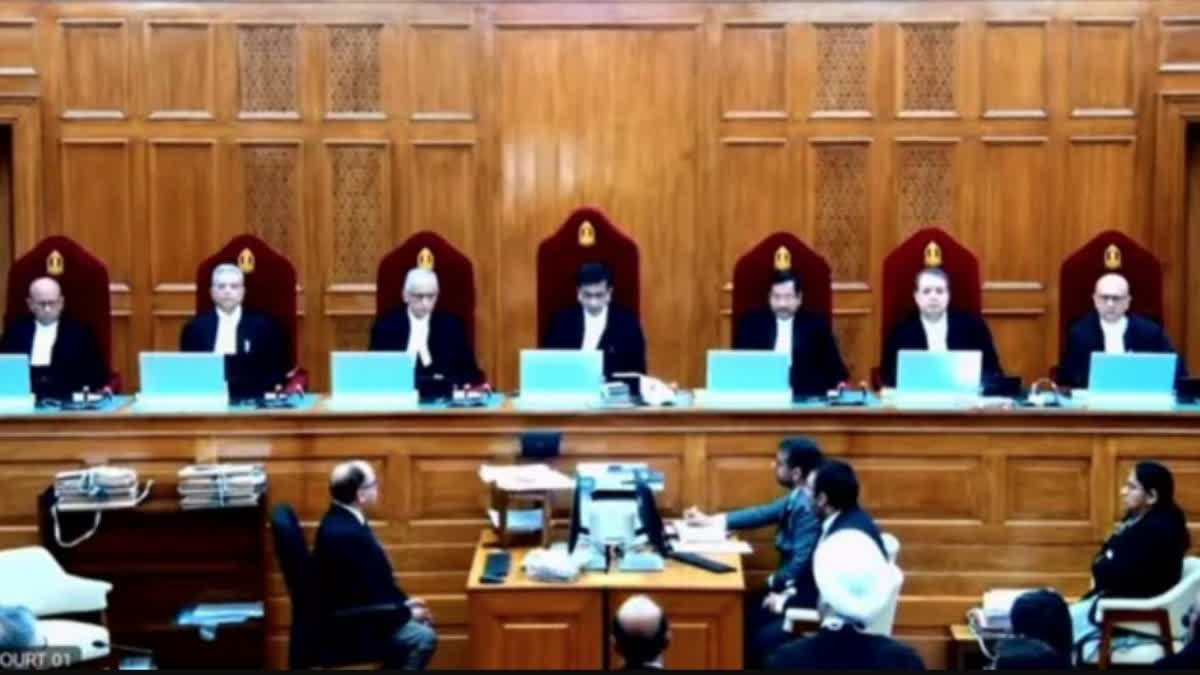New Delhi: Overruling its 1998 judgment protecting lawmakers from graft, a seven-judge bench of the Supreme Court on Monday said that an MP or MLA cannot claim immunity from prosecution on a charge of bribery in connection with the vote or speech in the Parliament and state assembly.
The bench led by Chief Justice of India D Y Chandrachud said that in the course of the judgment while analysing majority and minority decision of Narsimha Rao judgment, “we disagree and overrule the judgment that parliamentarian can claim immunity…..”. The apex court said that the judgment of the majority in Narsimha Rao which grants immunity to legislators has a grave danger and thus overruled.
The apex court said corruption or bribery by a member of legislature erodes probity in public life. The Supreme Court also said that the offence of bribery is agnostic and it does not matter whether vote is cast in certain direction or is not cast at all, and the bribery is complete when bribery is accepted , and the interpretation in Narsimha Rao is contrary to articles 105(2) and 194 of the Constitution.
The apex court further said, "To give any privilege unconnected to the functioning of Parliament or legislature will lead to creating a class that enjoys unchecked exemptions from the operation of law of the land." The offence of bribe is crystallized on the taking of illegal gratification and it does not depend on whether the vote or speech is given later, SC added.
The bench stressed that the offence is complete at the point of time when the legislator accepts bribe. The apex court also said that corruption and bribery by legislators destroy the functioning of Indian parliamentary democracy.
On October 5, a seven-judge led by Chief Justice of India D Y Chandrachud and comprising justices A S Bopanna, M M Sundresh, P S Narasimha, J B Pardiwala, Sanjay Kumar and Manoj Misra, had reserved the judgment.
In 2019, a bench led by then chief justice Ranjan Gogoi, which was hearing an appeal filed by Sita Soren, JMM MLA from Jama and daughter-in-law of party chief Shibu Soren, who was an accused in the JMM bribery scandal, had referred to a five-judge bench the crucial question, noting it had “wide ramification” and was of “substantial public importance”.
Read More



